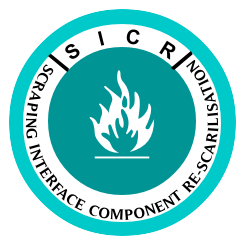
What is SEO ?
Search engine optimization (SEO) is the process of improving the visibility of a website or a web page in a search engine's "natural," or un-paid ("organic" or "algorithmic"), search results. In general, the earlier (or higher ranked on the search results page), and more frequently a site appears in the search results list, the more visitors it will receive from the search engine's users. SEO may target different kinds of search, including image search, local search, video search, academic search,[1] news search and industry-specific vertical search engines.
As an Internet marketing strategy, SEO considers how search engines work, what people search for, the actual search terms or keywords typed into search engines and which search engines are preferred by their targeted audience. Optimizing a website may involve editing its content and HTML and associated coding to both increase its relevance to specific keywords and to remove barriers to the indexing activities of search engines. Promoting a site to increase the number ofbacklinks, or inbound links, is another SEO tactic.
The acronym "SEOs" can refer to "search engine optimizers," a term adopted by an industry of consultants who carry out optimization projects on behalf of clients, and by employees who perform SEO services in-house. Search engine optimizers may offer SEO as a stand-alone service or as a part of a broader marketing campaign. Because effective SEO may require changes to the HTML source code of a site and site content, SEO tactics may be incorporated into websitedevelopment and design. The term "search engine friendly" may be used to describe website designs, menus, content management systems, images, videos,shopping carts, and other elements that have been optimized for the purpose of search engine exposure.
As a marketing strategy
SEO is not an appropriate strategy for every website, and other Internet marketing strategies can be more effective, depending on the site operator's goals.[44] A successful Internet marketing campaign may also depend upon building high quality web pages to engage and persuade, setting up analytics programs to enable site owners to measure results, and improving a site's conversion rate.[45]
SEO may generate an adequate return on investment. However, search engines are not paid for organic search traffic, their algorithms change, and there are no guarantees of continued referrals. Due to this lack of guarantees and certainty, a business that relies heavily on search engine traffic can suffer major losses if the search engines stop sending visitors.[46] Search engines can change their algorithms, impacting a website's placement, possibly resulting in a serious loss of traffic. According to Google's CEO, Eric Schmidt, in 2010, Google made over 500 algorithm changes - almost 1.5 per day.[47] It is considered wise business practice for website operators to liberate themselves from dependence on search engine traffic.[48] Seomoz.org has suggested that "search marketers, in a twist of irony, receive a very small share of their traffic from search engines." Instead, their main sources of traffic are links from other websites.[49]
International markets
Optimization techniques are highly tuned to the dominant search engines in the target market. The search engines' market shares vary from market to market, as does competition. In 2003, Danny Sullivanstated that Google represented about 75% of all searches.[50] In markets outside the United States, Google's share is often larger, and Google remains the dominant search engine worldwide as of 2007.[51]As of 2006, Google had an 85-90% market share in Germany.[52] While there were hundreds of SEO firms in the US at that time, there were only about five in Germany.[52] As of June 2008, the marketshare of Google in the UK was close to 90% according to Hitwise.[53] That market share is achieved in a number of countries.
As of 2009, there are only a few large markets where Google is not the leading search engine. In most cases, when Google is not leading in a given market, it is lagging behind a local player. The most notable markets where this is the case are China, Japan, South Korea, Russia and the Czech Republic where respectively Baidu, Yahoo! Japan, Naver, Yandex and Seznam are market leaders.
Successful search optimization for international markets may require professional translation of web pages, registration of a domain name with a top level domain in the target market, and web hosting that provides a local IP address. Otherwise, the fundamental elements of search optimization are essentially the same, regardless of language.[52]
 News article | World news
News article | World news




